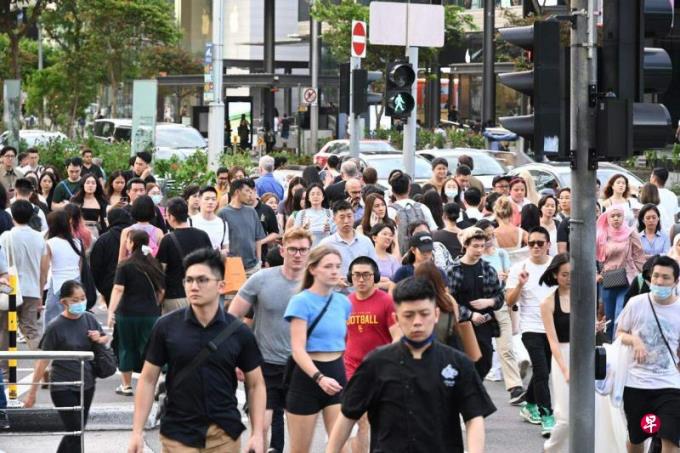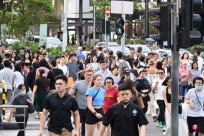
The "Family Demand Survey" and "Basic Requirement Public Cognitive Survey" of Singapore Management University and Singapore Policy Research Institute show that locals' awareness of daily necessities and elements is pragmatic and materialized.It is the first time that the investigation of the Ministry of Social and Family Development is the first time in the local area, which is not small.In addition to understanding the cognition of Chinese people in life, it can also make the relevant discussions of public opinion more foundation, not only to fall into the embarrassment of each word.The investigation revealed the pragmatic and material -oriented life view of the locals. At the moment of the increasingly prosperous society, there is no lack of enlightenment, and provides valuable reference data for future policy formulation.
Different income, housing types, and age layers have different understanding of living needs, which is natural; after all, at different stages of life and living environment, people will inevitably lead to a variety of demand cognition.But in general, the demand for the lives of locals is mainly concentrated in the level of satisfying material desires. More than 90 % of the 10 major needs identified by the interviewees are inseparable from the refrigerators, public transportation and houses.The demand for life of higher income seems to be closer to the luxury consumption defined by ordinary people, such as at least once a month, traveling to Southeast Asian countries once a month, massage, paid streaming services, etc.
Observe from the public level, the public's views on life needs are in line with common sense. Two -thirds of the respondents believe that the government should help people who cannot afford to meet basic living needs such as food and clothing, accommodation, and medical care, but to maintain comparisonThe decent living standard, such as air -conditioning or restaurants, more than 60 % of people think this is personal responsibility.In other words, in the past, when discussing the gap between the rich and the poor and the pressure of living expenses, there was a lack of sufficient empirical foundation, so it was easy to flow in the dilemma of strong subjective colors and spoken people.The survey results believe that it can provide a relatively clear factual foundation for future discussions, which is conducive to decision makers and the general public to condense consensus.
The survey found that the local social mentality is generally healthy, and the "relative deprivation" of the successful successful people is not strong.The minimum income group (the family's monthly exposure from zero yuan to 2499 yuan), with an average of 5.3 life required, which is 1.6 to 3.4 than other income groups.Among them, emergency savings (24.1%), which are equivalent to half a year of expenses (24.1%), emergency savings (16.2%) that equal to three months of expenses (16.2%), and travel to Southeast Asian countries each year (11.3%).Compared to traveling every year, occasional massage services, and dwelling leave, more people regard emergency savings as necessary for life, reflecting the correct and responsible values of a plan.
On these empirical basis, the public's discussions on social fairness, gap between the rich and the poor, and government roles should be more rational and objective.The public's perception of common sense of life needs shows that they know that the gap between the rich and the poor and poverty are two different things.Everyone's different talents, abilities and encounters means that their acquired achievements must be different, and there is a gap between income and wealth.Such a gap should not be suppressed, but it is necessary to encourage -only by encouraging those who are capable to exert their potential can we create more wealth for society.What the government should do is to ensure that people's basic living security is worry -free, that is, to reduce poverty.
Another investigation result that should be valued is that the locals may have a pragmatic outlook on life.Many people feel that if the government needs to use more resources to improve poverty, it may be possible to cut expenditures in art and culture, sports, and heritage protection.This reflects the bias of the Chinese people in cognition.Although "good food and food is known for glory and disgrace" is the common sense of people, the society must also respect the cognition and moral character requirements of "poverty cannot be moved".This must pay more attention to the needs of non -material life such as culture and art and sports.The factors of deviations are relatively complicated, and some may be related to the strong sense of worry during the founding period and the derived policies.But with the increasingly richer society, people's awareness of life needs must also be improved.
One of the major side effects of wealthy society is that the proportion of material and spiritual life is prone to imbalance.Blindly focusing on material life achievements will lead to various disadvantages such as psychological health problems and lack of defense for extreme thoughts.Because people are born with no spiritual needs and pursuits, including imagination of the future and exploration of transcendence.If lack of spiritual needs and even religious beliefs, people are more inclined to seek alternatives in ideological identity such as secular political identity.Personal self -radical cases are frequent, and even more young people ask for help from spiritual doctors, which are the symptoms of this imbalance.Therefore, in the future, when defining "basic needs", it may be adjusted.




